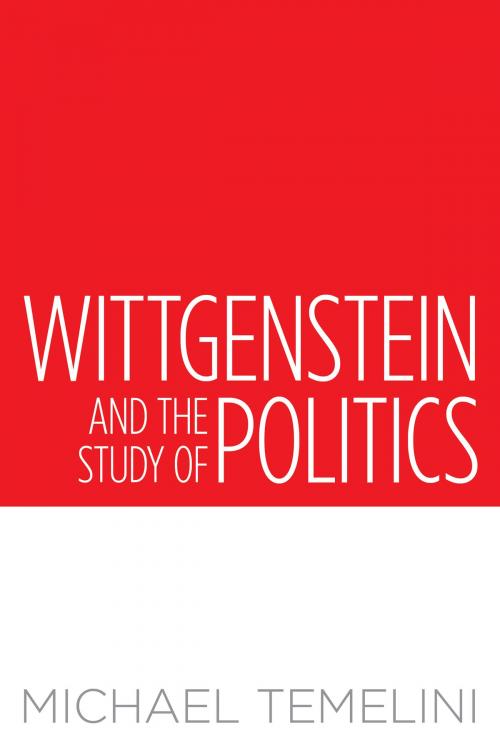Wittgenstein and the Study of Politics
Nonfiction, Religion & Spirituality, Philosophy, Political, Social & Cultural Studies, Social Science, Sociology| Author: | Michael Temelini | ISBN: | 9781442665460 |
| Publisher: | University of Toronto Press, Scholarly Publishing Division | Publication: | March 27, 2015 |
| Imprint: | Language: | English |
| Author: | Michael Temelini |
| ISBN: | 9781442665460 |
| Publisher: | University of Toronto Press, Scholarly Publishing Division |
| Publication: | March 27, 2015 |
| Imprint: | |
| Language: | English |
In Wittgenstein and the Study of Politics, Michael Temelini outlines an innovative new approach to understanding the political implications of Wittgenstein’s philosophy. Most political philosophers who have approached Wittgenstein have done so through the idea of therapeutic skepticism, implying politics that privilege conservatism or non-interference. Temelini interprets Wittgenstein differently, emphasizing his view that we come to understand the meanings of words and actions through a dialogue of comparison with other cases. Examining the work of Charles Taylor, Quentin Skinner, and James Tully, Temelini highlights the ways in which all three, despite their differences, share a common debt to that dialogical approach.
A cogent explanation of how Wittgenstein’s epistemology and ontology can shed light on political issues and offer a solution to political challenges, Wittgenstein and the Study of Politics highlights the importance of Wittgensteinian thinking in contemporary political science, political theory, and political philosophy.
In Wittgenstein and the Study of Politics, Michael Temelini outlines an innovative new approach to understanding the political implications of Wittgenstein’s philosophy. Most political philosophers who have approached Wittgenstein have done so through the idea of therapeutic skepticism, implying politics that privilege conservatism or non-interference. Temelini interprets Wittgenstein differently, emphasizing his view that we come to understand the meanings of words and actions through a dialogue of comparison with other cases. Examining the work of Charles Taylor, Quentin Skinner, and James Tully, Temelini highlights the ways in which all three, despite their differences, share a common debt to that dialogical approach.
A cogent explanation of how Wittgenstein’s epistemology and ontology can shed light on political issues and offer a solution to political challenges, Wittgenstein and the Study of Politics highlights the importance of Wittgensteinian thinking in contemporary political science, political theory, and political philosophy.















